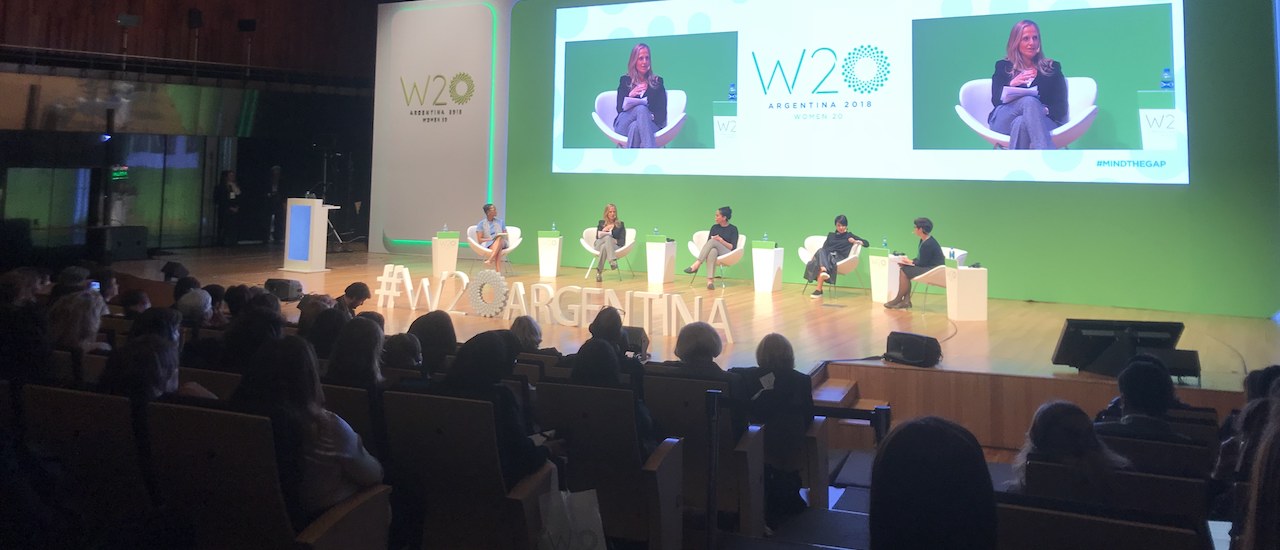What if future generations in 2030 learned about gender inequality in their history class and not in their lived realities? What can rural women achieve when included in digital society? What can we do now to ensure a future without a gender digital gap?
Many women and girls are being left behind in digital development. Women are 12% less likely to use the Internet globally than men, while in low and middle-income countries, the gap between women’s use and that of men is 26%. This is not only a question of connectivity, but about using the Internet in a meaningful way.
These were some of the critical issues the W20 Summit tackled in Buenos Aires last week.
W20 Argentina, a step forward in the right direction
Women20 (W20) is one of the key G20 engagement groups which supports the promotion of gender inclusive economic growth.
Its recent summit was an opportunity for leaders to make progress on several fronts ranging from digital inclusion to labor inclusion, financial inclusion, and rural development.
In the final Comuniqué, 146 delegates from all sectors of the economy committed to “[Improving] access, affordability, safety, and security of digital services, broadband, and connectivity plans, and the availability of relevant content and services, while taking into consideration women in all their diversity.” This was one of the 15 recommendations that the W20 included in their final communiqué presented to the Argentine President, Mauricio Macri.
The text includes a call for “developing holistic and cross-sectoral policies” that abolish the barriers to women’s access and use of technology and recommend “guaranteeing inclusive educational programmes in STEM” and “ensuring women’s participation in the development of Artificial Intelligence in order to avoid gender bias.”
Next steps: W20 Japan
In 2018, the G20 Digital Economy Ministerial Declaration committed to bridge the digital gender divide and now the W20 Communiqué will give more tools to G20 heads of state at the Leaders’ Summit in Buenos Aires on 30 November.
However, this will not happen without a tangible action plan.
This is what The Internet Society, together with the Association for Progressive Communications (APC), have jointly called for in a background paper that analyzes how to unlock access to the Internet in support of women’s inclusion.
As in the G20 Open Letter, we urge all G20 countries to work collaboratively with diverse stakeholder groups to adopt commitments that live up not just to the promise, but also the responsibility, of ensuring that the evolving digital society supports a healthy web ecosystem and puts people first.
We also urge the G20 leaders to adopt these recommendations and make the necessary commitments to tackle the digital gender gap!
This is the challenge the 2019 G20 presidency from Japan will have to tackle!
Read Women’s digital inclusion: background paper for the G20. The Internet Society is proud to be a partner of EQUALS: The Global Partnership for Gender Equality in the Digital Age.
Help build an Internet that’s for everyone! #CountMyVoice

